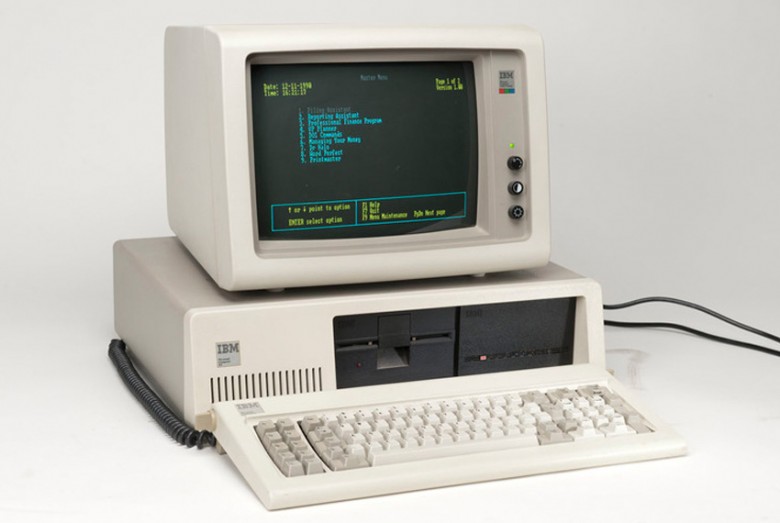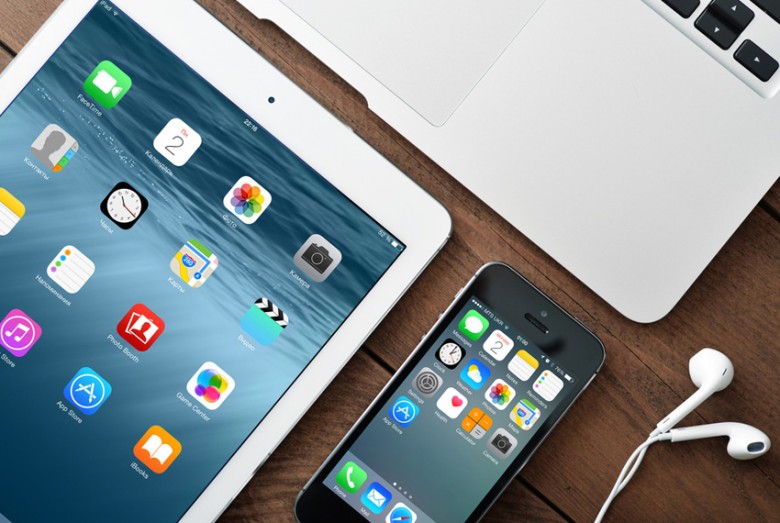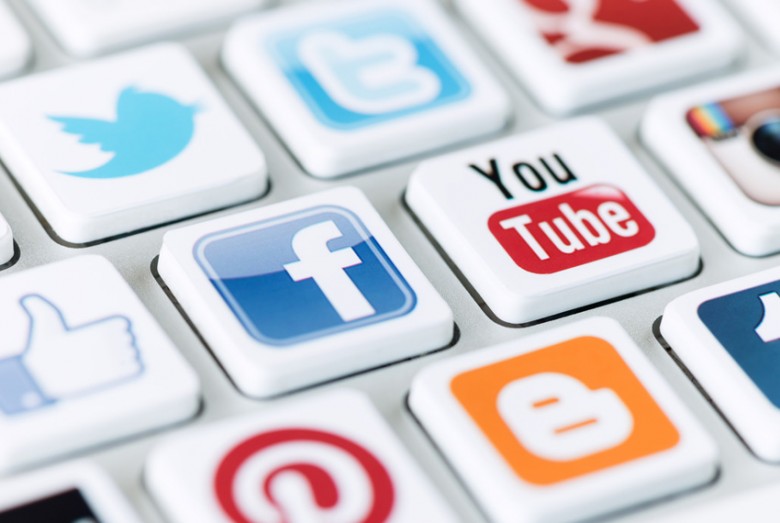Failure is not fatal, but the failure to change might be. – John Wooden
As a baby-boomer, I have been in the workforce for the past three decades in both corporate and non-profit environments. I had a career in a major aerospace company in the USA and I was positioned as an Administrator over various Aerospace Projects. My career began around the inauguration of the first IBM PC-XT computer.

At that time, the internet was still in its infancy and email was just beginning to be used. Computers were still being driven by CPM 5.25” floppy diskettes, dial-up was at 9200 baud, and portable computers weighed 20 pounds. It sounds like ancient times, and in retrospect, it was in comparison to how the world is operating today.
What I have learned over the years is that adaptation to the changing environment is key in order to grow and develop a sustainable eco-system in the workplace. What was cutting edge when I started is obsolete today. What was an exciting advancement is no longer remembered. Being an observer of the workforce, and being privileged to have had such a diverse view of not just industries but cultures, has allowed me to appreciate the changes that are happening around us.
Let’s start with the obvious:
The workforce of our future will have a different face than what we have experienced in the past. No longer will the good-old-boys network and silos exist behind walls of hierarchy. Higher salaries will no longer be the primary motivator for recruiting qualified candidates. Geographic distances will no longer be an issue since technology has bridged the gap between both hemispheres. This may be more visible in places like the US, Europe, Singapore, Hong Kong, and even China, but many parts of the world are applying more technology to how they do things, and this is helping them evolve. I like to use the word “adapt” more than just “change” because it’s not simply about altering practices or tools. It’s about altering towards improvement. It’s about changing for the better, which means developing into something that thrives.
There are four specific ways that the workforce has been evolving that we need to be ready for:
New People
Companies need to be ready to welcome Millennials who will begin to take over the workforce majority. If they don’t change their mindset they will lose the opportunity to recruit this growing demographic of the future.

Dan Schawbel states in his forbes.com article ’10 Ways Millennials Are Creating The Future Of Work’: “Millennials are going to make major shifts in corporations over the next decade and most people aren’t ready for the amount of change that’s coming. By 2025, millennials will account for 75% of the global workforce and by next year, they will account for 36% of the American workforce. At some companies like Accenture and Ernst & Young, they already account for over two thirds of the entire employee base.”
Millennials bring with them a new culture that business must adapt to in order to embrace them. They are the highly tech-savvy generation with a new emphasis on innovation and community. They are on a quest for meaning and relevance to the needs of the many and not the few. They are seeking after authenticity in others and themselves. Collaboration is the desired modus operandi and for them degrees are meaningless, only producing results matters regardless of what initials follow your name.
New Ideas
We live in a world where getting information isn’t the problem anymore, but rather the ability to decipher and discern what is important becomes the new challenge. Millennials are accustomed to this way of life as they were literally born into a world of “immediate access” via touch screens on tablets and phones.

We Millennials were the first to grow up with home Internet, smartphones, and constant, real-time digital connectivity, and these are the tools that have shaped us. We’re a tech-savvy generation. In a 2010 Pew / Edelman study, when Millennials were asked what makes their generation unique, the number one response was “technology use.” In MTV’s Millennials survey, 85% of Millennials said their tech expertise made them faster than older coworkers; 76% said their bosses could learn a lot from them, and two-thirds thought they should be mentoring older co-workers on technology….What sets us apart, though, is that we’re the first generation to see multiple massive technological shifts within our lifetimes. Consider how long it took for certain game-changing 20th-century technologies to go from 10% adoption rates in American households to 60%: the telephone took roughly 45 years; the automobile did in 15; color TV in 10 years; and Internet and mobile phones were adopted by a majority within five years. Facebook, which didn’t even exist at the start of 2004, recently reached its billionth user worldwide. -U.S. Chamber of Commerce Foundation, “Millennials In 2042: What They Will Be”
The early-adopters of technology is in the DNA of the Millennial generation and they have the ability to consume inordinate amounts of data each day using their smartphones and tablets. Various perspectives and pros vs. cons are easily dissected through this process as a bee-hive of possibilities emerge through this consumption. This can be a great thing for companies that both encourage constant growth, empower critical thinking, and guide their people to explore different ways of achieving goals within the parameters of the company values.
This leads me to the third point.
New Values
TEAM WORK:
Millennials have grown up in a world where war was ongoing (Vietnam 1975-89, Iran-Iraq War 1980-88, Gulf War 1990-91, etc). Many families were fragmented due to this and sometimes children grew up with only one parent present due to these conflicts. As a result, a collaborative mindset toward working out conflicts and moving toward a unified resolution has become a characteristic of this generation. The value for team-work vs. the tall-poppy mindset is a priority. New generations are growing up in an environment of heavy sharing on social media, using shared rides on things like Uber or GrabTaxi, sharing homes on Airbnb, or sharing their lives on Facebook, Twitter, and Instagram.
PERSONAL VALUES:
Also, the desire to be authentic to their personal values is of the highest priority and no longer is the position, title or salary the defining marker for them. If the job provides them the opportunity to remain true to themselves and afford them the ability to make a difference through their contribution, then you have a very engaged contributor to the team. Otherwise, they won’t have anything to do with it.
DIVERSITY:
Gender and Ethnicity are no longer boundaries to overcome but rather opportunities that are embraced. In this age of social media where everyone is connected virtually and barriers are transparent, the millennial focuses on the connection to others as a source of inspiration and collaboration.
At the 2012 SHRM Annual Conference, Malcolm Gladwell said that millennials are more about “the network” than “the hierarchy”. They care less about titles, status and salaries. They are more drawn to projects that connect with their strengths and abilities and favor managers that support them through training and development.
INNOVATION:
Innovation can be defined as: “To renew, restore; to change. The act or process of introducing new ideas, devices or methods.” The Millennial can be characterized as one who craves for innovation and when given the opportunity will pursue creating their own start-ups if existing business do not accommodate their zeal for innovation.
A study from Bentley University, “Millennials in the Workplace” came up with two major conclusions to their survey:
First, Millennials have not rejected the corporate world, but they will seek other options, such as starting their own companies, if they cannot find workplaces that accommodate their personal values – prominent among them time allocation, relationships and job security. They are confident in their abilities and strive for career success, but will not tolerate unpleasant workplaces that do not allow them to be their authentic selves in expressing their personal and family values. On the other hand, they are loyal and dedicated to companies that allow them to stay true to their personal and family values.
A second finding of the study relates to gender similarities. The attitudes and aspirations of Millennial men and women are converging. Both men and women are family-oriented and seek a personal life beyond work. While women are still not being treated similarly to men, the findings suggest that the best path to advancing women in corporate America is to see the problem as a generational issue, not a woman’s issue, because both men and women are seeking the same type of workplace where they can be their true selves. Companies risk the loss of men as well as women by not allowing employees to accommodate personal and family values as part of the way they accomplish their work. How they are able to combine these changes in values without losing their corporate principles is a difficult yet important challenge companies today must win.
The workforce of the future will be made up of new people, new ideas, new values and new ways. This growing demographic across the globe will become the new force that will change the world. Companies that embrace them will invite their passion to contribute, care and catalyze change for the future.
New Ways
The New World has arrived and it’s found it’s way into virtual reality where information is available at moment’s touch. The Millennial believes that technology empowers them to make informed decisions.
The social media innovations with Periscope and Facebook have even become primary informers of current events. For example, In recent tragedies in Nepal, Facebook and Google were first on the scene to provide immediate update to live events by people in the midst of the crisis.

In the arena of marketing, the aptitude of the technology being used has become a priority over the brand name of the product. This is why these trending statistics below characterize the Millennial generation from CMO.com, “15 Mind-Blowing Stats About Online Shopping”:
Annalect Primary Research and Insights conducted a study: “#GenerationTech: Millennials & Technology” and came up with these findings:
- Democratization through technology – From a macro-level perspective, technology provides Millennials with a digital democracy; while they recognize it is not a perfect democracy, they feel that technology provides them with freedom, empowerment and equality across all aspects of their lives
- Leveraging tech to enhance media choices – Technology offers Millennials a more robust and personalized media experience, whether through user-generated content (UGC), streaming services or apps, Millennials have a fuller media menu and are empowered to become part of the program content
- Brand name alone will not suffice – The technology a brand uses is just as important as the brand’s name when it comes to Millennials’ perceptions of brands and purchase considerations; they have specific expectations of how brands should use technology to build stronger consumer relationships
- Phases of the commerce process influence the devices used – The smartphone is the most used and preferred device for all aspects of the shopping process, except when it comes to the actual purchase – Millennials prefer the computer across all product/service categories
The workforce of the future will be made up of new people, new ideas, new values and new ways. This growing demographic across the globe will become the new force that will change the world. Companies that embrace them will invite their passion to contribute, care and catalyze change for the future.

